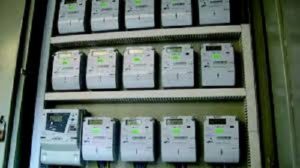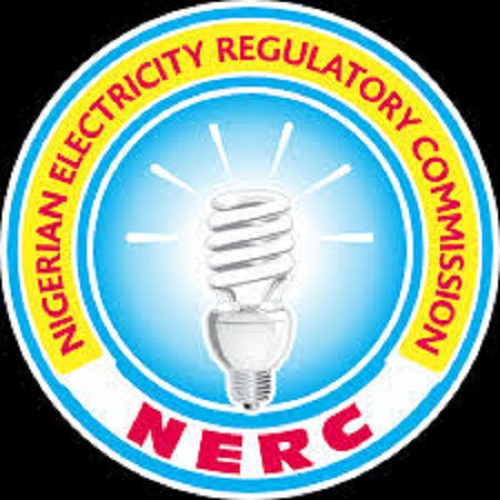The Nigerian Electricity Regulatory Commission, NERC, continues to enhance the operations in the power sector in terms of proper regulations and guidance in the Power Sector Value Chain. Energy Frontier takes a look at the activities of NERC and the stakeholders in the Electricity Value chain.
In the present circumstances as the Electricity Act has been singed, many states may be unwilling to activate the constitutional amendment because of the attendant huge financial cost implication. Largely, the three aspects of the value chain may still be subjected to federal regulation, with the Commission continuing to regulate the larger part of the electricity sector
Ultimately, the success of a federal/state system for regulating electricity depends on the commitment of both levels of government to cooperate and work together towards common goals
Key Highlights & Implications
Nature of the Amendment: electricity has always been on the concurrent legislative list, some states have made some attempts, Lagos, Edo, Kano, states were not prevented from investing in the electricity value chain, state could obtain licences from NERC and 50% of the investment in NDPHC is owned by the state governments.
State Level Licensing & Regulation: Issuance of licences, setting up commissions and agencies and making policies and regulations
The amendment allows States to make laws relating to the generation, transmission, and distribution of electricity in areas covered by Nigeria’s national grid.
Law-making relating to electricity generation, transmission, and distribution has been a matter under the concurrent legislative list such that both the federal government and individual States could make laws. The Constitution, however, specifies the extent of the lawmaking power of each level of government, with the amendment removing previous existing restrictions.
Role of NERC
Set minimum standards and regulations, while state governments implement additional requirements or regulations that are tailored to their local needs.
Collaboration with critical state and FG stakeholders is necessary in order to adequately drive implementation of the amendment process
Energy transactions across borders, transmission of the national grid, etc
Ensure reliability, safety and security of supply to customers. All this is in addition to NERC’s existing statutory functions
Provision of regulatory and executive guidance in a timely manner to ensure states hit the ground running. Establishment of legal mechanisms to resolve disputes or conflict between federal and state law.
NERC continues to provide the required leadership, guidance, and necessary support.
Periodic engagements of all stakeholders for better synergy, identification of priorities and alignment for the implementation of the amendment provisions
Necessary investments by state governments via public and/or private funding
What is a Meter? & Why Metering?
Electricity Meter: is a device that provides a transparent and accurate measurement for kilowatts of electricity consumed by the customer
Metering: provides the opportunity for customers to pay for what they consume and in turn improves customers’ satisfaction, eliminates Estimated Billing practices of the Discos, Enhances revenue collection which is critical to the financial viability of the Nigerian Electricity Supply Industry, NESI.
Types of Electricity Meter
Per Use: end User Non-Maximum Demand, MD, Homes, shops, etc.
Single & Three Phase, maximum Demand (Load of above 45kVA) ~ Banks, Large buildings, Distribution Transformer, DT.
Substation
Class: Prepaid Meters and Postpaid Meters (Credit Meter)
Metering Interventions
Due to inability of the Discos to finance the metering over the years, the following interventions were instituted by NERC/FGN: Credited Advanced Payment for Metering Implementation (CAPMI) Scheme – (2013 – 2016)
Meter Assets Provider (MAP) Scheme – (2018 – Date)
National Mass Metering Program (NMMP) – (2020 – 2022)
Metering Initiatives
Credited Advanced Payment for Metering Implementation (CAPMI) – (2013 – 2016)
Introduced in 2013 to bridge the metering gap and reduce estimated billing
The scheme allowed direct payment for meters by customers
Upon payment, meters were to be installed within 45 days
Customers got refunds for the payments through reductions in the fixed charge element of their bills over time
Discontinued in 2016 due to implementation challenges
A total of 410,796 were installed under this scheme across all the discos
Meter Asset Provider (MAP) Scheme (2020 – Date)
MAP Regulations approved in March 2018, but full meter deployment commenced in August 2019
The Objectives are listed to include: to close the metering gap through accelerated meter, roll out, to eliminate estimated billing practices, to attract private investment to the provision of metering services and to provide revenue assurance in the Nigerian Electricity Supply industry
NERC Granted 133 ‘No Objection’ for Nigerian businessmen to participate as MAPs
Discos carried out procurement of their respective MAPs and got approval from NERC to sign contract with MAPs to finance, supply, Install and maintain meters over the useful life of the meters (10years)
Discos signed contract with MAPs for 6.5million meters
NERC approved meter prices reviewed due to forex & macroeconomic indices:
- 1-Phase ₦36,991.50 → ₦44,896.17 → ₦58,661.69 (exclusive of VAT)
- 3-Phase ₦67,055.85 → ₦82,855.19 → ₦109,684.36 (exclusive of VAT)
Two payment options for customers are upfront payment by customers and payment by instalment up to maximum of 10years repayment period (this option has been repelled)
Upfront Customers to pay for meters to a dedicated MAP account
Discos to make customer residence ‘meter ready’ before installation by MAP
MAPs to install meters within 10days upon payment by customer
Consumers to be compensated through energy rebates upon vending
National Mass Metering Programme (“NMMP
Introduced by FGN (2020 – 2022):
The objectives were to ensure quick and mass rollout of meters to electricity customers where they will no longer pay directly for meters, to improve customer experience and eliminate estimated billing, to reduce collection losses and improve revenues and enhance NESI’s financial viability.
To provide long-term low interest financing to Discos through CBN and World Bank. To Improve local meter manufacturing capacity and create employment in the local meter value chain
NMMP Implementation

The three Phase of NMMPPhase are Phase 0, Phase 1 and Phase 2
Phase 0 commenced in October 2020.
FGN/CBN provided financing for 1m meters across the 11 Discos, customers did not pay directly for the meters and Meters installed by MAPs as directed by the Discos
Phase 1
FGN/CBN provide financing to procure 4m meters. A Project Implementation Unit, PIU, established to handle competitive Procurement restricted to only LMMAs Procurement exercise has commenced.
Phase 2
World Bank provide financing to Discos 1.2m meters and international Tendering in line with WB Procurement Policy
Challenges & Regulatory Interventions
The challenges are as follows: Discos’ inability to fund metering, meter Tampering Phenomenon, customs Levy on FBU Meters
Regulatory Interventions
Introduction of CAMPI, MAP & NMMP, issuance of Order of Unauthorized Access and FGN Waiver for 1 year.
The MAP & National Mass Metering Regulations 2021 (MAP&NMMR)
Why a new Regulation?
The only existing regulations on metering was the MAP Regulation 2018
Discos were not allowed to procure/install meters using their own resources
Federal Government’s intervention through the National Mass Metering Program is being implemented partially without a direct regulatory instrument to guide implementation
The need to create a market for metering services in NESI beyond government intervention
To align all other metering programs in NESI and provide proper regulatory guidance to all stakeholders
Overview of MAP& NMMR 2021
Effective date 9th August 2021 and replaced MAP Regulations 2018.
Applicable to all Discos, MAPs, LMMA for the provision of Non-MD customer meters in the NESI.
It allows the financing of meters by FGN (through CBN or WBG) and also directly by the Discos.
Discos still have the responsibility to meter their customers regardless of the form of financing adopted
Protects the customers by ensuring their right to be metered at no direct cost to them (except where voluntary for which compensation is paid to the customer by the Disco)
Meter price will be based on the competitive price matching arrived at during the procurement process and approved by NERC
MAP Framework
Discos may continue to use their current MAPs (or appoint new ones subject to NERC approval) for metering service based on an MSA, MAPs can receive upfront payment from willing customers and ensure meters are installed in line with this Regulation, any customer who volunteers to make upfront payment for meter shall be entitled to refund from the Disco through Energy Credits and Meter price to be charged for MAP meters shall be the competitive matching price from the PIU procurement approved NERC
NMMP Framework
Customers will get meters “free” (with no direct payment)
A central Project Implementation Unit, PIU, established to carry out an open competitive bulk procurement of meters on behalf of the Discos.
Local Meter Manufacturers/Assemblers participate in the competitive bid
PIU to determine the price of meters from the competitive bid process subject to NERC approval
FGN/CBN shall provide financing to Discos for the procurement of 4m meters
WBG shall provide financing to Discos for the procurement of 1.2m meters
Customers Rights
The installation of an appropriate meter to accurately determine energy consumption and provide for energy accounting.
Receive refund via energy credits to Customers who elect to make upfront payments from the Disco.
Where a customer has made monthly payments under MSC the cumulative amount paid shall be refunded via energy credits.
The repair or replacement of faulty meters by the Discos within 2 working days at no additional cost to the customer.
But where it is established that the customer willfully damaged a meter, the Disco shall replace the meter based on an upfront payment by the customer or other mutually agreed terms of payment.
Where dispute arise on responsibility for destruction of a meter, the customer shall be entitled to a to fair resolution of the dispute; and the Disco shall replace the meter pending the resolution of the dispute.
The Customer & Disco representative shall jointly note the energy credits remaining on the meters being replaced and the customer shall be credited with the outstanding energy credits on the replacement meter within 48 hours of installation.
Customers Obligations
Granting access to their premises for inspection and installation of meters.
NOTE: Any customer that denies access to his premises for purposes of inspection and installation of a meter shall be disconnected from supply and denied service by the Disco until access is granted to the premises.
Ensuring the safety of the meter and not tamper with it; and also ensure that unauthorized persons are not granted access to the meter.

DisCos Rights
All meters supplied shall form part of the Distribution Licensee’s Regulated Asset Base,RAB.
Discos Obligations
Provision of meter deployment plans, with details of customers to be metered.
Timely provision of relevant information to MAPs & LMMA, to enable them fulfil their obligations under the MSA/MPA.
Confirming the readiness of the customer’s premises for metering before installation.
Where a customer willingly pays Upfront for meter to MAP and fails to install a meter, the Disco shall ensure a meter is installed within 10 days.
DisCos Obligations
Repairing and replacement of faulty meters within two working days of receiving the customer’s complaint.
Billing customers strictly on their consumption pattern (last billing cycle) or the existing energy cap whichever is lower on account of the Disco’s failure to repair or replace a meter.
Periodic inspection of meters at customer premises to ensure integrity and reading accuracy.
Refund of payment for the cost of meters via Energy Credit to customers who make/made upfront payments under the MAP framework.
Refund customers the cumulative Meter Service Charge (MSC) payments already made to MAPs under the previous MAP regulations
Timely payment for services rendered in accordance with the terms of the MSA with the Disco.
Access to customer premises to carry out its operations with respect metering.
Installing meters & metering accessories in compliance with the Disco’s specifications, industry standards and codes for meter installation.
Installing meters at customer premises within 10 days of being notified of payment and the Disco’s confirmation that the premises is ready for metering.
Engaging only certified MSP (Installers) for the deployment of meters.
Compliance with the provisions of the Metering Code by ensuring that all meters are tested and calibrated by the Nigerian Electricity Management Services Agency (“NEMSA”) prior to customer installations.
Compliance with agreed service standards in MSAs with the Disco.
The rights and obligations of the LMMA shall be as provided in the terms of their contracts with the Disco
LMMAs shall be required to submit monthly returns with the Commission on performance under its contracts with Discos and transactions with MAPs including pricing, volumes and pending deliveries.
Insight: “In pursuit of eliminating the practice of estimated billing for unmetered customers in the NESI, the Commission approved the Meter Asset Provider, MAP, Regulations in April 2018 with the main objective of fast-tracking the deployment of end-use meters for all consumers thus ensuring that customers pay for only what they consume. This Regulation was later adjusted to accommodate the National Mass Metering program hence the Meter Asset Provider MAP, MAP, National Mass Metering, NMM, Regulations 2021”, NERC said.
“The MAP/NMM regulations is without prejudice to the obligation of the DisCos to provide specified volume of meters under the terms of the Performance Agreement, PA, executed between the respective core investors and the Federal Government of Nigeria, FGN”, added the Commission.
Section 32(2)(g) of the EPSRA according to NERC empowers the Commission to carry out any functions that are necessary to give effect to the objects of the Commission
“The provision of electric meters to customers prior to electrical connection is further affirmed by Section (1) of the Regulation on connection and disconnection procedures with a requirement that … a Distribution Company shall …….. “fit a meter and connect electricity supply in line with the Commission’s customer service standards of performance”, NERC noted.
The provisions of Section 8 of the Meter Reading, Billing, Cash Collection and Credit Management Regulation requires that “where there is no electricity meter to record electricity usage at a Customer’s supply address, a Distribution Company shall base the Customer’s bill on an estimated energy consumption which shall be calculated in accordance with a method approved by the Commission.”
Genesis of the Capping Order
The Commission was inundated with customer complaints on non-provision of meters, faulty/malfunctioning/failed meters which resulted to arbitrary estimation of customer bills by Discos.
The Commission attempted to dis-incentivise Discos from estimated billing, protect vulnerable unmetered customers and to facilitate deployment of end-user metering, hence bridging initiatives were provided in the past which culminated into the issuance of the Order on Capping of estimated Billing.
The extant Customer Protection Regulations, particularly the Methodology for Estimated Billing, MEB, Regulation did not bring the desired customer satisfaction in the NESI.
Address the perceived and real injustices and unsatisfactory service provision by DisCos by bringing parity to R2 and C1 metered and unmetered customers; stop arbitrary billing of the R2 and C1 unmetered customers; expedite metering and improve customer satisfaction and reduce incidence of high collection losses.
Align billing of unmetered customers with energy realities on a monthly basis, institute a mechanism for independent review of the billing practices of DisCos and introduce transparency in the billing of unmetered customers.
INVESTMENT IN NETWORKS: ISSUES AND CHALLENGES IN NIGERIAN ELECTRICITY SUPPLY INDSTRY, NESI.
Distribution Franchising
The Distribution Franchising and Guidelines permit DisCos to cede any part of their network to a third party
There are four major categories of franchising, Metering, Billing and Collection could be outsourced.
Total management in a ring-fenced area. Total management of distribution feeders, including billing and collection
Loss Reduction and provisions of embedded generation- franchises can procure additional power
IEDN Classification, Requirements & Eligibility
Classification, Isolated off-grid rural IEDN , Isolated off-grid urban IEDN
Embedded IEDN
Requirements: A generator or agreement with the Disco to supply the IEDN.
Accurate description of its proposed distribution system, including geographical location
Eligibility
The Commission may grant an IEDN, licensee the rights to construct, own, operate and maintain a distribution system in a designated geographical area within the area of operations of a Successor Distribution Company


















